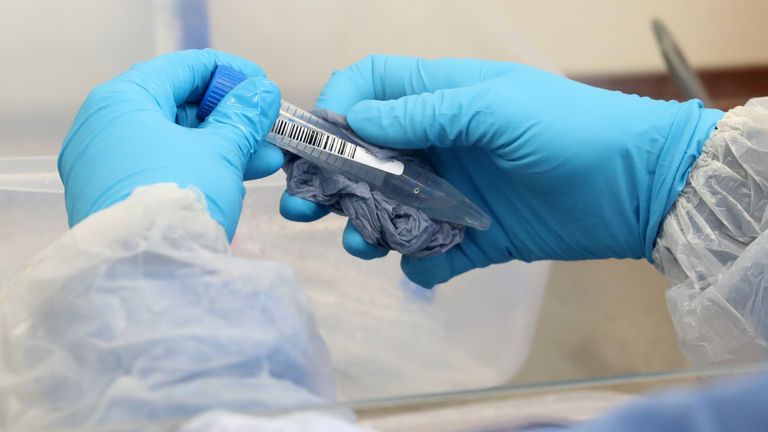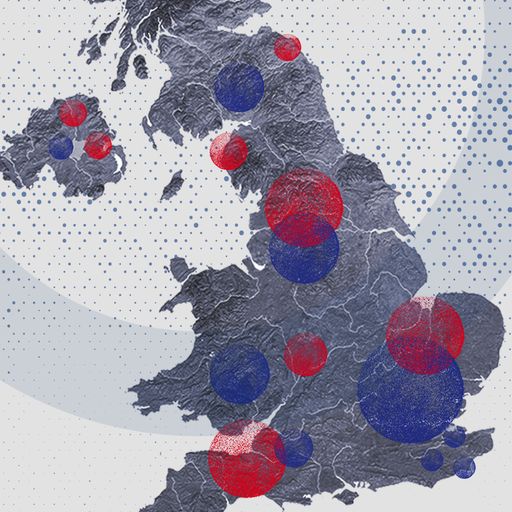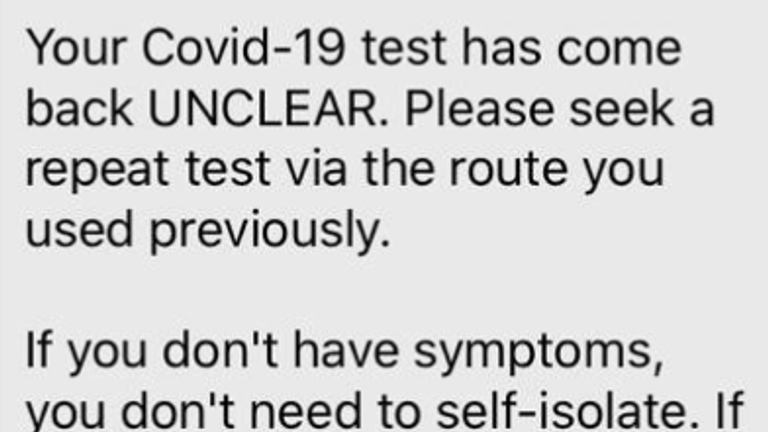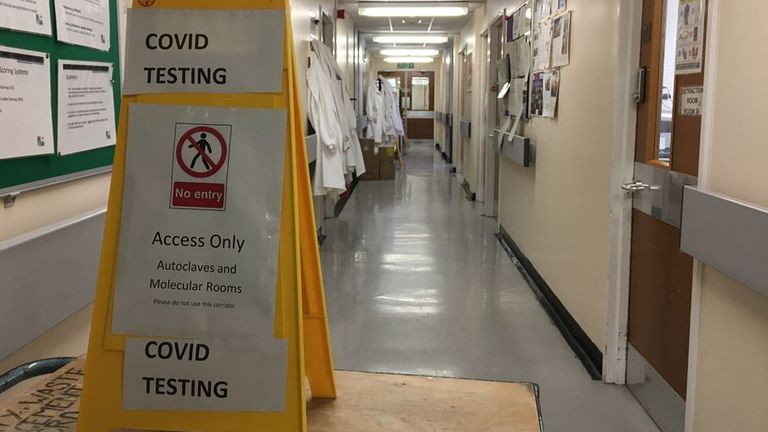Coronavirus: Thousands of laboratory tests coming back unclear, raising prospect of damaging delays
Public health experts are warning that a slow turnaround in diagnosing COVID-19 patients could undermine contact-tracing efforts.
Wednesday 27 May 2020 10:25, UK
Thousands of coronavirus tests conducted at the government's main testing laboratory do not produce a clear outcome, Sky News can reveal, forcing people to wait days while they are retested.
Sky News has learned that 4% of swab tests conducted at the government's main testing laboratory in Milton Keynes are declared "unclear" because of limitations in the chemical testing process.
Tests can also fail to produce a clear result if they are not administered correctly, if there is a delay transporting them to the laboratory, or if there are problems with labelling, barcoding or packaging.
It is not known how many tests in total are inconclusive, but Prime Minister Boris Johnson has promised to increase testing capacity across the testing network to 200,000 a day by the end of the month.
This means at least 8,000 tests a day could potentially be unclear, or 56,000 a week.
Scientists said that unclear results were a normal part of the testing process, but public health experts warned that delays in getting results to people could undermine the government's test, track and trace system, which is expected to be launched next week.
When a test does not produce a clear result, people are asked to repeat their test. They are sent a text message which says:
"Your COVID-19 test has come back UNCLEAR. Please seek a repeat test via the route you used previously."
They are then advised to self-isolate if they continue to have symptoms.
A scientist advising the government on its contact-tracing app said delays in diagnosis made contact tracing harder.
"For contact tracing to work, it has to be quick," said David Bonsall, a researcher at Oxford's Big Data Institute.
"There's no point in contact tracing if you're tracing people and finding individuals after they have infected others, you have to catch up with the virus.
"It's the virus that determines how quick testing needs to be, and it does need to be very fast indeed."
When Sky News spoke to people who had received unclear test results, they said the system could be painfully slow.
"I was told I would receive my results within five days but it actually took 16 days for them to tell me the results were unclear," said Chris Dunne.
"They said I should get tested again but I saw that as pretty pointless because it says the best time to get tested is within three days of showing symptoms."
Kelly, who did not give her full name, said it had taken "two weeks" for her mother to get a result for her test, which came back unclear.
"In that time we had to call paramedics twice and on the second time she was admitted to Whiston hospital for treatment," she said.
"She was tested there, twice, but the doctor warned it would likely be negative as she was on day 12 of her symptoms."
Matt Waller, who works in North Cumbria University Hospitals NHS Trust, received an unclear test result 11 days after his test, which he took because his partner had COVID symptoms.
"It made me a little anxious because at that point I'd worked a handful of shifts at two A&E departments in my trust seeing patients and working alongside staff who would be considered at risk," he said.
"I was still asymptomatic but decided to contact my occupational health department. They agreed to swab me on the basis of the inconclusive test. I got swabbed this Monday and that came back negative on the 19th. It's all felt very inconsistent."
A spokesperson for the Department for Health and Social Care told Sky News:
"We have full confidence in the reliability of our tests and our highly-skilled scientists do everything possible to make sure inconclusive results are extremely rare. Inconclusive test results occur with tests for any virus."
"More than 1.8 million people have now been tested and the vast majority have had no issues with their test results," they added.
Rupert Beale, a scientist at London's Crick Institute who conducts COVID-19 tests, said it was normal for any testing process to produce unclear results.
"It usually means there was a very low viral load or there was no viral load and you couldn't tell the difference between them," he said.
"It's really just about the limits of the testing process."
Asked whether the government advice to self-isolate if symptoms continued was sensible, Dr Beale said "it seems very reasonable".
"All the laboratories are incredibly good at detecting a large amount of virus - and in a way that's the important thing for limiting spread."








